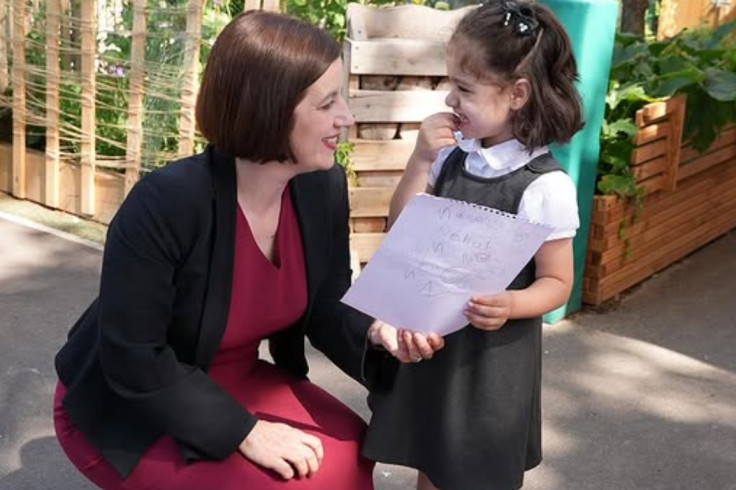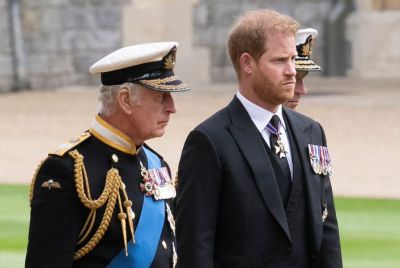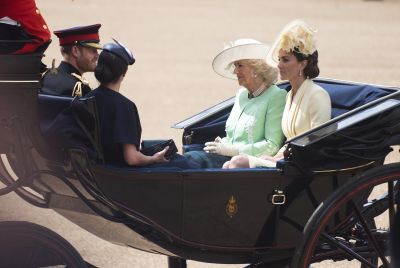Who Is Bridget Phillipson? Quick Facts on Her Age, Education and Labour Deputy Leadership Bid
Education Secretary becomes first cabinet minister to enter Labour race

Education Secretary Bridget Phillipson has made history as the first cabinet minister to enter the Labour deputy leadership race, launching her campaign ahead of the Trades Union Congress (TUC) conference in Brighton.
She is presenting herself as a unifying contender grounded in working-class values while showcasing her record on education reform.
Quick Facts on Bridget Phillipson
Aged 41, Phillipson was born on 19 December 1983 in Gateshead, Tyne and Wear. She studied History and French at the University of Oxford before beginning her career in local government and working for a women's charity.
She entered Parliament in 2010 as MP for Houghton and Sunderland South and has since built a steady rise within the Labour Party. Since July 2024, she has served as Secretary of State for Education and Minister for Women and Equalities.
Raised in a working-class family in the North East, Phillipson often cites her upbringing as a key influence on her political outlook.
Phillipson's Rise in Labour
Phillipson has been active in Labour politics since her youth and has steadily climbed the party ranks since first being elected in 2010. She previously held shadow posts including Shadow Chief Secretary to the Treasury and Shadow Education Secretary before being appointed to the cabinet in 2024.
Known for her pragmatic style and close attention to policy detail, she has built a reputation as a trusted member of Keir Starmer's leadership team. Her promotion to Secretary of State for Education marked a key step in her rise, giving her a prominent platform in government.
The Labour Deputy Leadership Contest
The deputy leadership race was triggered by Angela Rayner's resignation, creating one of the most significant contests inside Labour this autumn. Phillipson was the first cabinet minister to declare her candidacy, signalling her intent to shape the party's future direction.
She faces competition from Bell Ribeiro-Addy, representing the party's left, while several senior Labour MPs including Louise Haigh, Lisa Nandy and Jess Phillips have ruled themselves out. Candidates must secure at least 80 MP nominations by Thursday in order to appear on the ballot.
The voting period runs from 8 to 23 October, with the result set to be announced on 25 October. Observers note that the contest will play a key role in determining Labour's balance of leadership between its central and grassroots factions.
Education Policy Record
As Education Secretary, Phillipson has put attendance and behaviour at the heart of her agenda. In August, she launched 21 'attendance and behaviour hubs' designed to support schools in tackling disruption and absenteeism. The initiative aims to provide guidance to up to 5,000 schools, with 500 receiving intensive support.
Two national ambassadors, Tom Bennett and Jayne Lowe, have been appointed to oversee the programme, which responds to Department for Education data showing that classroom disruption costs pupils an average of seven minutes in every half hour of teaching.
Phillipson has also drawn attention to the higher suspension rates among white working-class pupils on free school meals, warning of long-term economic and social consequences if problems persist.
She has argued that both schools and parents need to take more responsibility for addressing poor behaviour and absenteeism, positioning education reform as central to her leadership pitch.
Why Bridget Phillipson Matters Now
Phillipson's candidacy highlights Labour's efforts to present leadership figures who reflect both gender diversity and regional representation.
As a female cabinet minister from the North East, her campaign brings a different profile to a senior role often dominated by London-based figures.
Her campaign launch at the TUC conference underscores her alignment with the trade union movement, a constituency vital to Labour's internal politics.
Supporters suggest she could act as a bridge between the party's leadership and its grassroots, strengthening Labour's image ahead of the next general election.
© Copyright IBTimes 2025. All rights reserved.




















